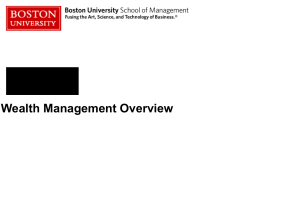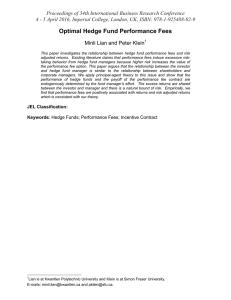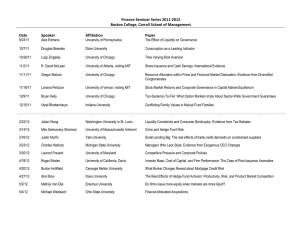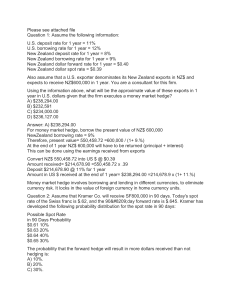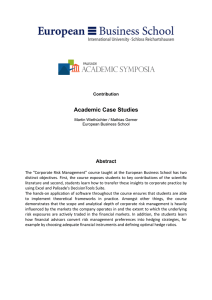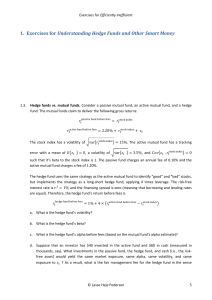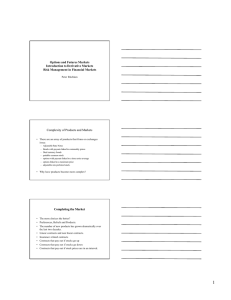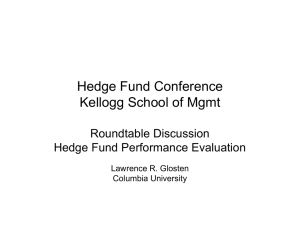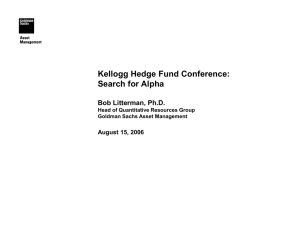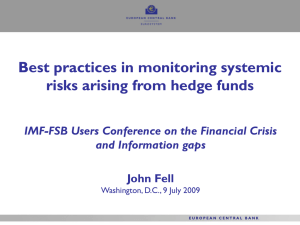15.617, Spring 2004 John Akula Lecture 20: 4/28/04
advertisement
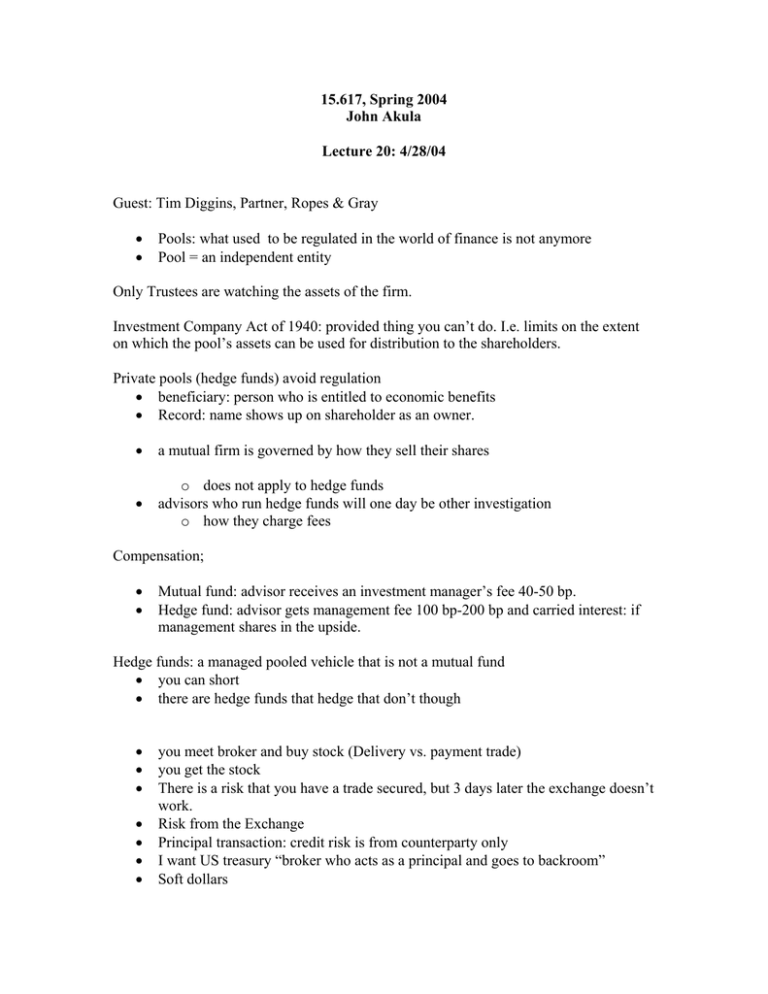
15.617, Spring 2004 John Akula Lecture 20: 4/28/04 Guest: Tim Diggins, Partner, Ropes & Gray • Pools: what used to be regulated in the world of finance is not anymore • Pool = an independent entity Only Trustees are watching the assets of the firm. Investment Company Act of 1940: provided thing you can’t do. I.e. limits on the extent on which the pool’s assets can be used for distribution to the shareholders. Private pools (hedge funds) avoid regulation • beneficiary: person who is entitled to economic benefits • Record: name shows up on shareholder as an owner. • a mutual firm is governed by how they sell their shares o does not apply to hedge funds • advisors who run hedge funds will one day be other investigation o how they charge fees Compensation; • Mutual fund: advisor receives an investment manager’s fee 40-50 bp. • Hedge fund: advisor gets management fee 100 bp-200 bp and carried interest: if management shares in the upside. Hedge funds: a managed pooled vehicle that is not a mutual fund • you can short • there are hedge funds that hedge that don’t though • you meet broker and buy stock (Delivery vs. payment trade) • you get the stock • There is a risk that you have a trade secured, but 3 days later the exchange doesn’t work. • Risk from the Exchange • Principal transaction: credit risk is from counterparty only • I want US treasury “broker who acts as a principal and goes to backroom” • Soft dollars • In the old days brokerage dollars were fixed. • If you are an investment advisor to a mutual fund o Who gets benefit of soft dollars o Congress investment advisor can use soft dollars for research and brokerage services. o Congress says you have to put 50% collateral. • Futures contracts: I will buy from you 500 things 90 days from now at today’s price o You can leverage up o You need to put an initial margin at 5% o Deal with it every day o Interest is embedded o You can use this for indexes an single securities Unregulated notional contracts: I rate swaps • As long as fixed rate is greater than floating rate, you make a spread • Hedge funds are not limited by who they can trade with • Goldman Sachs has prime brokerage arrangements Portfolio 1: Long equities-US/foreign Short Leverage bonds: domestic and foreign Portfolio 2: Long equities (60%) Short Leverage bond (30%) F/X hedging – unregulated * Hedge funds are hard to set up Æ entrepreneurial drive

